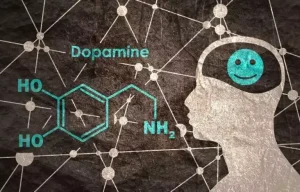Making Amends: A Crucial Part of the 12 Steps
Publicado por:

With these kinds of promises, there may not be enough genuine intention of changing their hurtful patterns and behaviors. Living amends refers to making promises to the people in your life whom you’ve wronged or who have hurt you. These promises focus on rebuilding your relationship with a loved one and moving forward from the pain of the past.
Patient Care Network
- Many people think of making amends as simply apologizing for whatever wrongs they did in their using, however an apology is not an amend.
- We can also make amends by living very purposefully within the bounds of our principles.
- Although recovery in general must be done selfishly (i.e. you must put yourself before others in order to get well), Step Nine is the most selfless of all steps.
- The sincerity and importance of making amends should hopefully be unaffected by how they are received, underscoring it is a personal commitment to growth, not reliant on someone else’s reception.
- Making amends is a pivotal part of the AA 12-step recovery process.
If you’re still in treatment, it could be some time before you can obtain a job and save enough to return a substantial amount of money. Some situations, such as those involving the custody of children, other legal matters, or multiple complex issues at play, may be best to pre-game with the appropriate professionals. Recognize that there are limits to the things you are personally able to control. As in many harms done, I found that it just wasn’t «I» who had it all twisted up. In opening up some past wrongs and in making those amends, many dear and wonderful people have also received healing, an understanding and answers to stuff they were holding on to for far too long. Step 9 is another one of the 12 steps, that initially appears most difficult, but the rewards of putting this principle into practice can be immense.
Advance Directive Forms

People are encouraged to take an honest look at themselves, then deconstruct their egos and rebuild, little by little. The Steps encourage the practice of honesty, humility, acceptance, courage, compassion, forgiveness and self-discipline—pathways to positive behavioral change, emotional well-being and spiritual growth. Step 8 is a challenging list to write because this process requires you to hold yourself accountable for your mistakes.

Understanding Outcomes

Wilson met Akron surgeon Robert Smith at an Oxford Group meeting. Both Wilson and Smith found that The Oxford Group’s treatment of sin as a “disease” resonated in discussions of their struggles with alcohol. The 12 Principles of AA drew heavily from these spiritual elements. The Oxford Group had a broad focus and was designed to help people overcome their problems by confronting their fear and selfishness. It’s not one we use too frequently in our everyday language, but it still holds significant meaning.
The AA Amends Script: A Full Breakdown and PDF
- Someone liked enough by mere contact with you may be best served by no additional contact.
- It is a clear and purposeful act designed to clear up a problem from the past.
- Making amends with the people you’ve fallen out with as you’re thinking about mortality and what happens when you die is one way of finding emotional freedom and closure.
- God or a higher power is mentioned several times throughout the 12 steps.
- Step 9 is about repairing relationships and includes actions such as apologizing to those harmed or making positive contributions to the community.
By 1939 and the publication of The Big Book, Wilson and Smith revised their principles, expanding them to reflect their work and its progress. AA is, of course, heavily focused on principles living amends of Christianity, but many of today’s groups have modernized the tenets to reflect a more diverse audience. Even so, the 12 Principles of AA have remained its central guiding influence.

Your Future Starts at Silvermist
Sometimes, a person will simply not be willing to accept your apology or efforts to compensate them for the harm you’ve caused. They may be dealing with their own mental health issues or the effects of past trauma and not be ready to move forward. Even though this may be painful, you need to accept that you cannot control how others respond to this part of your recovery journey. A 12-step program is designed to encourage long-term sobriety, by fostering a spirituality for recovery. Each step signifies a new challenge to reflect and/or act in a way that changes old mindsets and behaviors that once fed addiction.
- Living amends bridges the gap between living in shame and regret and finding forgiveness.
- It’s one thing to take personal inventory and admit our wrongs one time.
- But remember, being intentional and realistic is a big part of making impulsive promises or actions.
- Willingness and determination to clear away the havoc of our past lives pave the way for our new lives.
Comprehensive Care
If you’re participating in Alcoholics Anonymous (AA) or a similar 12-Step program, you’ve probably heard that making amends is an important part of your recovery journey. Having had a spiritual awakening as the result of these Steps, we tried to carry this message to alcoholics, and to practice these principles in all our affairs. The program and this step made me see that it was their own doing; they made the choice. This was after they both had died and I am sorry that I couldn’t take this issue up with them personally.